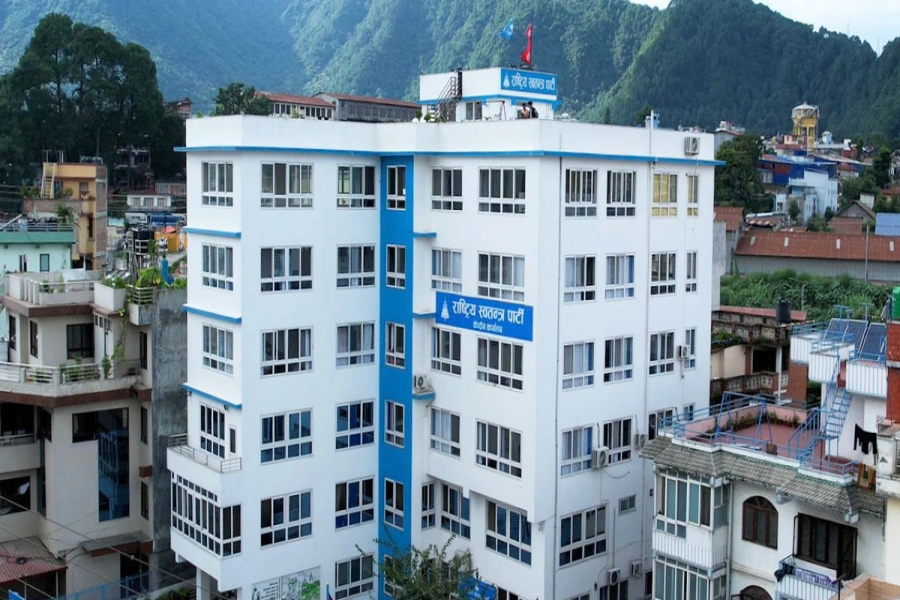KATHMANDU, Aug 22: The Supreme Court (SC) has directed the amendment of the law governing the proportional representation electoral system, asserting that it fails to adequately address the needs of targeted groups. The SC has called for a review of the House of Representatives Members Electoral Act, 2017, as well as other relevant electoral laws, ahead of the upcoming periodic elections.
The constitutional bench, led by Chief Justice Bishwoambhar Prasad Shrestha and including Justices Ananda Mohan Bhattarai, Prakashman Singh Raut, Prakash Kumar Dhungana, and Sushmalata Mathema, issued this order. Senior Advocate Bal Krishna Neupane and others filed a writ petition after the 2022 election, naming 121 individuals elected to the House of Representatives through the proportional representation system as respondents. The Supreme Court recently released the full text of the verdict, made on March 13, 2024. Since then, Justices Bhattarai and Mathema have retired from judicial service.
While dismissing the writ petition, the SC found no legal errors in the proportional representation electoral law. However, the court ordered an amendment to the law, acknowledging that while the members were elected according to the law, the law itself was flawed. This raises concerns that the law may have been crafted to serve the interests of political leaders.
Polls 88 days away, process for proportional representation be...

The SC emphasized the necessity of reviewing electoral laws to align with the Constitution's letter, spirit, and essence. The writ petition questioned whether candidates elected through the proportional representation system in the House of Representatives election held on November 20, 2022, were legally elected. The petitioner argued that the Election Commission had made a legal error in its decision.
The SC stated, "Even though the writ petition was dismissed, it is crucial to consider the primacy of rights guaranteed by Article 18(3), Article 38(4), Article 40(1), and Article 42(1) of the Constitution, which assure proportional representation as a right." The court's interpretation highlights the importance of preventing the capture of elected bodies by societal elites.
The SC pointed out that economically affluent, highly educated individuals who have served multiple terms as ministers or lawmakers could undermine the Constitution's goal of establishing an inclusive state structure if they dominate elected bodies. The House of Representatives Members Electoral Act, 2017, supports the principle of inclusivity, stating that all provisions related to the Constitution's preamble, fundamental rights, directive principles of the state, and proportional inclusivity must be considered. The SC recommended further amending existing laws to practically implement this principle.
The court also stressed the need to evaluate whether the representation based on 'population basis' as stated in Section 84(2) is sufficient if it only considers caste, ethnicity, gender, and region, or if it should also include economic and social disadvantage. The SC dismissed the writ petition, asserting that the proportional representation system, as it currently stands, is not fundamentally flawed. However, it reiterated that the inclusivity framework could be compromised if it falls into the hands of socio-economic elites within designated groups.
In the House of Representatives election on November 20, 2022, the petitioner claimed that the 110 members elected through the proportional representation system were not economically, socially, or educationally disadvantaged. The petitioner argued that these individuals were affluent, highly educated, and had previously served multiple terms as ministers or lawmakers.
The SC also highlighted the constitutional significance of inclusivity, which is not only related to equality but also to positive discrimination. The Constitution permits special arrangements for the protection, empowerment, or development of disadvantaged groups, including women, Dalits, indigenous peoples, Madhesis, Tharus, Muslims, and economically disadvantaged Khas Arya, among others.
No law can contravene fundamental rights, and the inclusion of inclusivity provisions as fundamental rights underscores their constitutional importance. Article 38 guarantees women's right to participate in all state bodies based on proportional inclusivity, while Article 42 provides the right to social justice, which includes participation in state bodies based on this principle. Although the directive principles of state policy are not directly enforceable, they guide state operations and support the implementation of fundamental rights. The SC's interpretation underscores the utility of these principles in constitutional analysis.






































